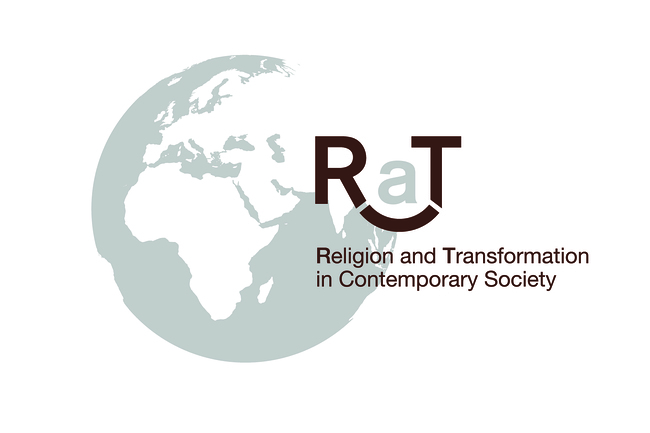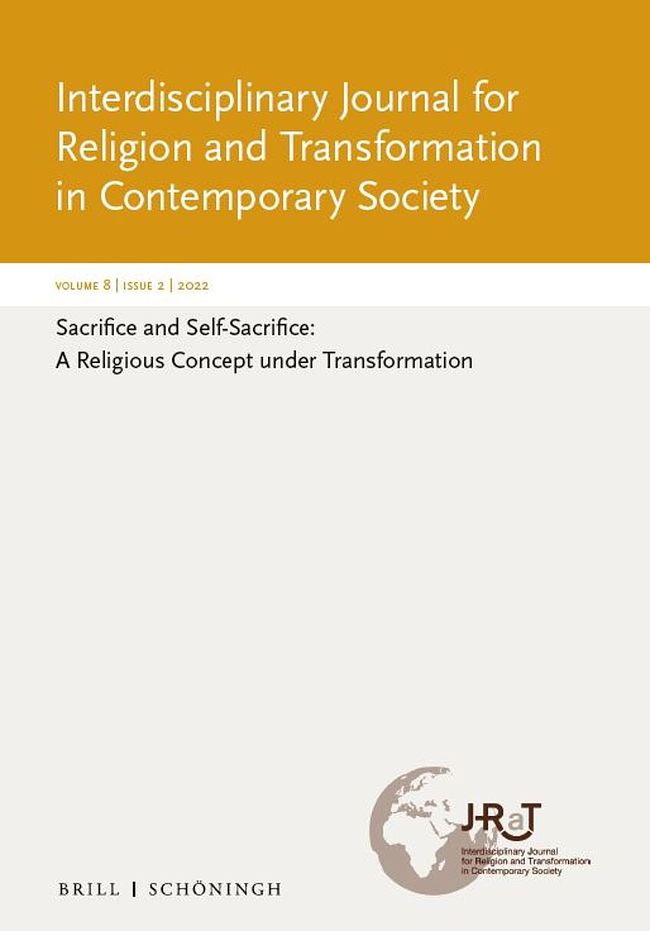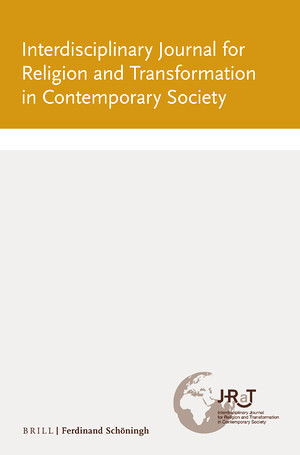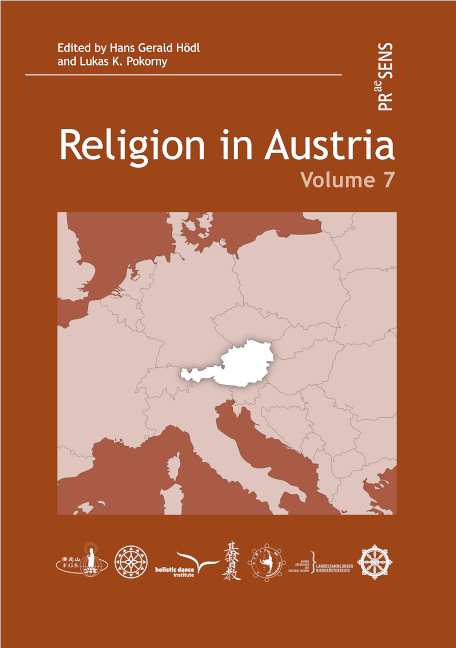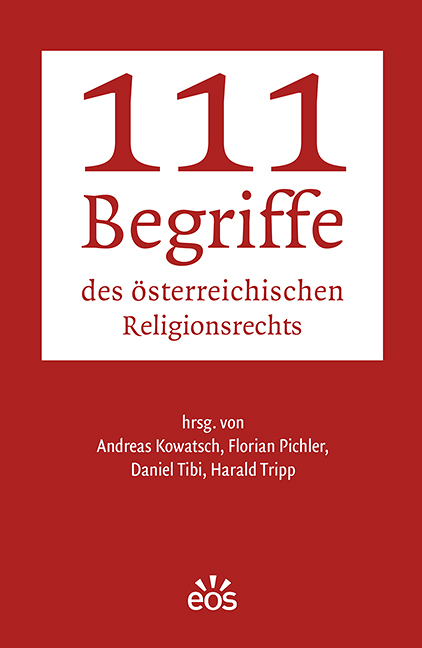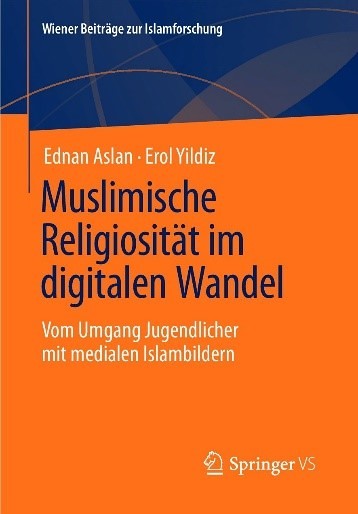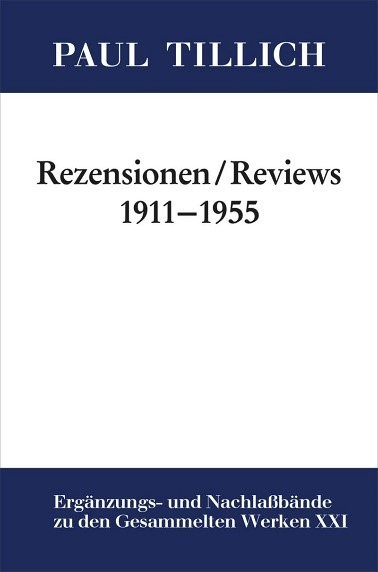|
|
Dear members and friends of RaT,
Spring has finally arrived and the new semester has started. Even though the dark and cold months of winter lie behind us, our members have been busy nonetheless, writing and editing books, publishing articles, organizing conferences and much more! A brief overview on some of our recent activities can, as always, be found below. We especially want to draw your attention to an upcoming event that will take place shortly after the publication of this newsletter:
The symposium “Spaces of Memory”, organized by Milja Radovic within the framework of her FWF-Project “Reframing Space: Film as History”, taking place on 16–17 March, will explore the meanings of memory and space, in theological, political, historical and cinematic contexts. The symposium will feature a presentation by the renowned filmmaker Andrei A. Tarkovskij among others. More information on the event and how to register can be found below.
Furthermore, we also want to highlight a new category that we have introduced in this newsletter: The Vienna Doctoral School of Theology and Research on Religion, which is cofounded by RaT, gives you an insight into its newest projects, including the announcement of a job opening for a Prae-Doc position. Applications can be handed in until March 31, for more detailed information see below.
Last but not least we want to draw your attention to our latest blog post: A series on "Deobandi ʿulamāʾ and Violence in Pakistan" by Muhammad Bilal, a doctoral student in Islamic Studies at the University of Vienna.
We wish you a pleasant reading and a wonderful start into the new semester!
Kurt Appel, Hannah Bleckenwegner, Noemi Call, Jakob Deibl, Marco Fiorletta, Astrid Mattes, Marian Weingartshofer.
Please consider forwarding our newsletter to those interested in the topics we work on!
|
|
Latest Issue:
JRAT 8 (2/2022): Sacrifice and Self-Sacrifice: A Religious Concept under Transformation, edited by Katerina Koci & Ludger Hagedorn
This issue is hosted in cooperation with the IWM.
Sacrifice, originally a religious-cultic concept, has become highly secularized and used in various instances for different social phenomena. The current issue puts forward a selection of papers that offer insights into sacrifice and self-sacrifice and focus on the process of transformation of the sacrificial individual. Three main axes put the concrete papers into a dialogue with one another: first, there is the philosophical-theological and gender reflection of the experience of the paradigmatic sacrificial story of the western tradition, i.e., the Akedah (Gen 22); second, the existential-phenomenological interpretation of self-sacrifice in the secular world which nevertheless aims to reveal a higher good – Freedom, Love, or the Good; third, the gender and feminist reflection of the motherly sacrifice of childbirth both in the religious-cultic context and in the secular context which presents childbirth both as a moment of autonomy loss and submission and a moment of women self-emancipation.
Link to the publication (full access).
|
|
|
Latest Contributions
published online in advance:
-
"Supreme Mathematics. The Five Percenter Model of Divine Self-Realization and Its Commonalities to Interpretations of the Pythagorean Tetractys in Western Esotericism", by Martin Abdel Matin Gansinger. Link to the publication (full access)
|
|
|
PUBLICATIONS: Monographs & Anthologies
|
|
Hödl, Hans Gerald/Pokorny, Lukas K. (eds.): Religion in Austria 7. Wien: Praesens 2023.
Based on original scholarship, this book series takes a Religious Studies perspective on the vast and largely uncharted domain of religion in Austria
Link to the publication.
|
|
|
Kowatsch, Andreas/Pichler, Florian/Tibi, Daniel/Tripp, Harald (eds.): 111 Begriffe des österreichischen Religionsrechts. St. Ottilien: EOS 2022.
The diversity of the "111 Terms of Austrian Religious Law" shows that religious law is a subject that spans wide areas of the legal system. The prevailing consensus in Austria to speak of "religious law" instead of the formerly customary "state-church law" already indicates its concrete location: without being explicitly so designated in the constitution, the Republic of Austria is a neutral state in religious-ideological matters. Religious law has become highly dynamic in recent decades as a result of far-reaching social transformation processes, including religious pluralization and increasing secularization. The churches and religious societies recognized in Austria are each presented by one of their highest representatives. To the extent that a certain internal perspective is sometimes implied here, this is intended as an invitation to dialogue and further thinking. In this way, this encyclopedia would like to make a contribution to dealing with current questions of religious policy.
Link to the publication.
|
|
|
Ednan Aslan/Erol Yildiz: Muslimische Religiosität im digitalen Wandel. Vom Umgang Jugendlicher mit medialen Islambildern. Wiesbaden: Springer VS 2023.
The effects of social media are particularly observable in relation to the religious engagement and practices of young people - who are now grouped under terms such as the "Internet generation," the "media generation" or "digital natives". Online media exert great influence on their lives, their understanding of the world, their religious orientations and actions. Their identity constructions and their cultural and religious orientations are closely intertwined with social media. This is exactly where the present study started with the question of what subjective consequences interaction on the social web has for religious orientations, practices and self-designs of Muslim youth in Austria. The focus was on the connections between media use, media images of Islam and lived religiosity. On the one hand, the results show that the use of social media creates objective spaces of possibility that can go hand in hand with an expansion of individual scope for action, whereby religious authority is increasingly questioned. On the other hand, the study also shows that the use of digital media can also lead to a narrowing of individual religious orientations.
Link to the publication.
The book is the result of the recently concluded research project: Der Einfluss des medial vermittelten Islambildes auf die religiöse Orientierung muslimischer Schüler*innen in Österreich.
|
|
|
Jan-Heiner Tück: Crux. Über die Anstößigkeit des Kreuzes. Freiburg: Herder 2023.
Can't be brought down - the power of the cross.
In the name of ideological neutrality and religious tolerance, crosses are gradually disappearing from public spaces. Instead of lamenting this in a culturally pessimistic manner, Jan-Heiner Tück productively turns the phantom pain over the quiet disappearance of the Christian symbol. He lets himself be inspired by different works from theology, philosophy, art and literature in order to make the saving and reconciling power of the cross visible alongside the complexity of the symbol. The result is a fascinating panorama of essays ranging from Plato and Euripides to Holbein and Dostoevsky to the present day.
Link to the publication.
The author is going to present his book on March 16, 19:00, at Buchhandlung Herder, Wollzeile 33, 1010 Vienna. The organizers kindly ask for a registration at: buchhandlung@herder.at
|
|
|
Kinzer, Mark S. /Schumacher,Thomas/Tück, Jan-Heiner (eds.): Jesus – der Messias Israels. Messianisches Judentum und christliche Theologie im Gespräch.
Freiburg: Herder 2023.
This volume demonstrates the pluriformity of Messianic Judaism and addresses Christological, ecclesiological, and eschatological questions: What does Jesus' Jewish identity mean for Christology? How is the surprising return of the ecclesia ex circumcisione to be interpreted? Can the return of many Jews to the land of Israel and the growing number of Messianic Jews be interpreted as eschatological portents?
Link to the publication.
|
|
|
Danz, Christian/Sturm, E. (eds.): Paul Tillich, Rezensionen / Reviews 1911-1955. Ergänzungs- und Nachlaßbände zu den Gesammelten Werken Paul Tillichs, Bd. XXI. Berlin/Boston: de Gruyter 2023.
The volume presents Paul Tillich's reviews, which he published between 1911 and 1955. Thus, for the first time, the reviewer Tillich comes into view, his perception of and engagement with other theological and philosophical positions, which until now remained largely unknown. Yet it is precisely the public discussion of new theological, philosophical, or social-scientific publications that makes visible how one's own position is formed in the criticism and affirmation of other authors. Reviews always provide an overview of one's own discipline, the problems discussed in it, and its further development, and show how the reviewer positions himself or herself in the discipline's field of discourse. However, it is not only with regard to Paul Tillich that the reviewing activities of theologians have been little researched.
Link to the publication.
|
|
|
PUBLICATIONS: Selected Articles
|
|
Cem Cara: "Jenseits religiöser Eindeutigkeit: Ambige Glaubensvorstellungen in historischen Überlieferungen des Alevitentums", in: Zeitschrift für Religionswissenschaft, vol. 30, no. 2, 2022, pp. 279-299.
This paper addresses the question of ambiguous ideas in historically transmitted texts of Alevi provenance. The study focuses on the production of ambiguities and attempts to explore the motives and, in particular, the intentionality of ambiguities. For this purpose, the study draws on writings of the so-called Buyruk tradition and the poetry of the Safavid Shah Ismail I (1487–1524) – two sources that are considered constitutive for Alevis historically and today. As a case study, the paper discusses ideas on the central Alevi saint Imam Ali (600–661). In both types of sources, at least three clearly distinguishable and even conflicting perceptions of Ali emerge. In addition to differentiating the individual levels of how Ali is perceived, the study offers various approaches to explain the ambiguous beliefs. The focus is on the question of the intentionality of ambiguities – whether and what intentions the authors might have in implementing them. Among various approaches, the idea that the authors intended to address different recipients with different concepts is discussed in more detail.
Link to the publication (full access).
|
|
Eduard Prenga: "Il pensiero come forma della sapientia nulliformis secondo Bonaventura", in: Sophia XIV/2 (2022), pp. 325-336.
The modalities, which express the meaning of thinking according to Bonaventure are the approach of the thought to the res that has to be considered, it means the méthodos and the act of thinking as forma nulliformis of the sapientia also nulliformis of the Revelation. How is this reciprocity between thought and wisdom, both nulliformis, articulated by Bonaventure? The following reflection focuses on this question.
Link to the publication.
|
|
RESEARCH
PROJECTS
Ednan Aslan
ÖAW-Project: „Muslimischer Antisemitismus und muslimische Moscheegemeinden in Österreich“ (starting March 1 2023, duration: 2 years)
A new call for proposals by the Austrian Academy of Sciences (ÖAW) funds projects in the study of contemporary anti-Semitisms. The funded basic research projects examine dynamics, challenges and effects of contemporary anti-Semitism - with a special focus on the Austrian situation and perspective. With this funding, the Austrian Academy of Sciences aims to provide scientific findings so that politics and society can adequately confront current manifestations and developments of anti-Semitism on a science-based basis, and take steps and measures to push back anti-Semitism. The project leader, who is employed at the Institute for Islamic Theological Studies at the University of Vienna, submitted a project proposal. After an international review, the selection decision was made by the Presidium of the Austrian Academy of Sciences.
Eduard Prenga
Belonging and Translation. Approaches to New Forms of Aesthetics
This research project is the continuation of a previous research focus. The project is based on a question that forms its analytical starting point: What does the turn to post-anthropocentrism mean for the historical existence of man? What is the relationship between the reality of human existence and its world-reality (“Weltwirklichkeit”)? How do they relate to each other in a complementary way (translationally)? The question of "translation" in this respect is neither purely metaphorical, nor to be examined exclusively in terms of linguistic analysis. Rather, it is about a new phenomenological approach to aesthetics: the perception of otherness as a process of placing oneself on the side of the other(s) (trans-lation (“Über-Setzung”)) does not merely represent a confrontation of two or more others (“Fremdheiten”), but it points to the indispensability of the other(s) to be or to become self. This phenomenological-intersubjective understanding of otherness then emerges as inclusive between the human being and its world and therefore as mutual self-trans-lation (“Selbst-Über-Setzung”), finally as mutual belonging, and it leads to a critical engagement with the "post" of post-anthropocentrism when it is understood as excluding human beings and therefore as the opposite of intersubjectivity.
The project is a part of the RaT research cluster on "Transformations in Religion and Aesthetics". The project homepage can be found here.
|
|
VDTR: Vienna Doctoral School of Theology and Research on Religion
|
|
VDTR Job Opening
We are pleased to announce the opening of one VDTR Prae-Doc position for a duration of three years. We look for a person with a completed master's degree in a theological discipline (Catholic, Protestant, Orthodox) or in a humanities or social science discipline related to religion (religious studies, Jewish studies, Islamic studies, religious education, Islamic religious education, sociology, philosophy or related disciplines) who wants to work in an interdisciplinary setting. The application deadline is March 31, 2023. Information on the application modalities can be found here.
VDTR Summer Schools
The VDTR cooperates with two RaT-Members – Gerhard Langer and Regina Polak - to offer attractive summer schools with different topics to its PhD students. From June 11 to 16, the European Summer University for Jewish Studies will place in Hohenems; and from July 12 to 16, the Corenet PhD Summer School with the topic of “Religious and Non-Religious Narratives on Migration” will be held at the University of Vienna. Further information on the program and the calls for proposals can be found here.
VDTR Promotional Video
Last fall, the VDTR had a promotional video produced, which has now been completed and can be found on our homepage. Watch the video to get to know us!
VDTR Masterclass and Public Lectures
On Monday, February 27, two members of Vienna Doctoral School of Theology and Research on Religion’s scientific advisory board – John S. Kloppenborg and Jens Schröter – visited the University of Vienna. Together with the VDTR supervisors and doctoral students, they animated a master class and discussed research projects of doctoral students in the field of biblical studies. The lively exchange was rounded off by two public lectures. In his lecture, John S. Kloppenborg asked how ancient cities provided a hospitable space for the cult of Christ. Jens Schröter developed the thesis that Paul in the Epistle to the Romans develops a general image of man that includes Jews and Gentiles alike.
|
|
|
Interdisciplinary Symposium "Spaces of Memory"
16–17 March 2023
Venue: Dekanatssitzungssaal, Universitätsring 1, Stiege 8, 2nd floor, 1010 Vienna
The speakers at the symposium will include professors and researchers of various disciplines both from Vienna and internationally, as well as speakers from the world of international filmmakers, most significantly Amos Gitai. We will begin by reflecting on the meanings of memory and space, in political, theological, political, historical and cinematic contexts. The presentations will be followed by the Q&A and the panel discussion. The second day of the symposium, "In conversation with…”, will host primarily the prominent filmmakers, including Andrei A. Tarkovskij, and the experts from the field of film, media and religion, who will continue to explore the relationship between filmic space, memory, time and the “cinema prayer”. The second day will be an opportunity for a lively discussion with the filmmakers
If you wish to participate, please register at: milja.radovic@univie.ac.at
The detailed programm can be found here.
Forum Religionsphilosophie: Lecture by Clarissa Breu (Georg-August-Universität Göttingen): Geste und Unterbrechung: Genesis 22 gelesen mit Judith Butler und Giorgio Agamben
20 March 2023, 15:00-16:30
Venue: Neues Institutsgebäude (NIG), Hs. 3C
Abstract: To be announced. The full program of the Forum Religionsphilosophie can be found here.
Politics of Dis-Enclosure: International Seminar with Achille Mbembe and other leading scholars, inspired by Jean-Luc Nancy's work
26–27 April 2023
Venue: 26 April: University of Vienna, Main Building, Dekanatssaal of the Faculty of Catholic Theology, 27 April: Abbey of Melk, Lower Austria
The seminar "Politics of Dis-enclosure" proposes to contribute to the task envoked by Jean-Luc Nancy’s notion of “dis-enclosure,” denoting an opening up of the world, by way of applying the motif of dis-enclosure to deconstruct the disconcerting race-religion-complex that takes shape in the maelstrom of globalization. As a matter of fact, the ways in which racialized and religious "others" are classified and dominated in similar ways today attest to the necessity to rethink political systems with regard to the logic of exclusion that they disavowedly entertain. This seminar is not intended as a memorial for Jean-Luc Nancy. It will be a thematic exchange of thoughts between several scholars (Achille Mbembe, Louise du Toit, Nabil Echchaibi, Anke Graneß, Petra Carlsson, Johann Schelkshorn), using Nancy’s notion of dis-enclosure, as an inspiration to think through and evoke this experience and its implications in a variety of contexts. The notion thus invites us to think about the thematic of the opening up of the world in new ways, also beyond the limits of Nancy’s application thereof. In seeking to disentangle the resurgent race-religion constellation that thrives on this globalized double-bind, we propose to profit from an affinity displayed in the works of all those invited.
If you wish to participate, please register at: marian.weingartshofer@univie.ac.at.
A detailed program will be available on the RaT-homepage shortly.
Poetics Lectureship: "Das Zimzum. Sechs Annäherungen an das Unsagbare" by Ulrike Draesner
May 8 2023, 19:00
Venue: To be announced
The abstract of the presentation will be available at the homepage of the Poetics Lectureship shortly.
International Symposium "Religious Education at Schools in Europe and International KnowledgeTransfer: Looking Back and Looking Ahead"
15–16 June 2023
Venue: University of Vienna
The conference will be chaired by Prof. Dr. Martin Rothgangel and Prof Dr. Friedrich Schweitzer (University of Vienna). The aim of the conference is to connect and continue the two international projects "Religious Education at Schools in Europe" and "International Knowledge Transfer in Religious Education".
The detailed program can be found here.
„Neutral State? Interdisciplinary Perspectives on the Autonomy of Religion, Art and Science” Conference of the RaT-Cluster "Transformations of Law between Religion and Society":
19–20 June 2023
Venue: 19 June: University of Vienna, Main Building, Dekanatssaal of the Faculty of Catholic Theology, 20 June: University of Vienna, Juridicum, Dachgeschoss
Religion, science and art are linked by a claim to autonomy that is shaped by their respective self-image. To protect them, the state takes institutional precautions that reflect specific concepts of the "autonomy" of these spheres and thus of the meaning of the corresponding fundamental rights guarantees of freedom. This is also associated with normative guiding concepts of "neutral" state behavior toward these autonomous spheres. In a broader awareness, the religious-ideological neutrality of the state is the most important issue: What does it mean, and what are the structural differences and similarities in comparison to the prohibition of a state "science" or "art" judiciary?
After introductory reflections on the possibility of neutral statehood, the conference turns to the internal perspective and takes up the respective self-image of the holders of fundamental rights. A philosophical synthesis leads to a discussion of the different legal understandings of autonomy and neutrality. An empirical analysis of political discourses on neutrality forms the prelude to the concluding panel discussion with experts on cultural, scientific and religious policy practice.
A detailed program will be available on the RaT-homepage shortly.
|
|
PAST EVENTS
Presentation of the YoubeOn Map
26 January 2023
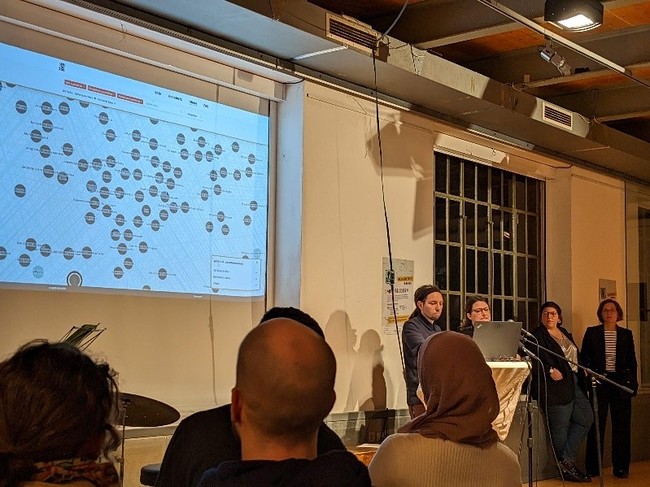
On Jan. 26, 2023, the YouBeOn Map was officially presented at a public event and with broad media interest (ORF, derstandard). The digital map is the result of the project “Young Believers Online: Mapping on- and offline identifications of urban religious youth”, which is based at the Institute for Urban and Regional Research of the Austrian Academy of Sciences from September 2020 to March 2023 and was carried out in cooperation with RaT and the Austrian Centre for Digital Humanities and Cultural Heritage of the ÖAW. The project was carried out by Miriam Haselbacher, Katharina Limacher, Christoph Novak and Astrid Mattes.
The YouBeOn Map symbolizes the diversity of religious life in Vienna by mapping the subjective lifeworlds of 41 young religious participants from seven different religious traditions. In order to depict religious everyday life in its on- and offline dimensions, the map consists of three layers. On the one hand, the map shows important geographical reference points in and around Vienna, on the other hand, the social media landscape of the participants can be explored by showing important Instagram accounts. A layer of ideas mediates between the on- and offline layer. Furthermore, this level shows a large amount of commonalities, but also characteristic peculiarities of different religious traditions.
The Map is now publicly accessible via http://www.youbeon.eu.
RaT Workshop "Religious Exits: Transformative Trajectories and Transitions into Alternative Worlds”
31 January 2023
The members of the RaT research centre organised an internal workshop entitled "Religious Exits: Transformative Trajectories and Transitions into Alternative Worlds" on 31 January 2023. The topic is currently the research focus of the centre.
Our point of departure is the consideration that religions claim to transcend immanent world orders, i.e. experiences that can be classified in the individually and collectively determinable spatiotemporal categories of the everyday world. By means of leaving immanent orders, however, not only everyday experiences are transcended, but also exits from world orders are found that include the religious subject in existing symbolic and social world orders. In this way, religion can contain an exit strategy in which the subject creates alternative places (of refuge), thereby overcoming firmly established limitations and opening up new worlds of imagination. Of course, religious practices are themselves ambivalent in this respect: on the one hand, they can prevent possible creative exits from established orders, but on the other hand, they can also radically open them up, insofar as the world of transcendence neither contains a definitively fixed territory nor an immovable order of time.
Kurt Appel, Gerhard Langer, Marianne Grohmann, Julian Strube, Sabine Grenz, Jakob Deibl, Astrid Mattes and Rüdiger Lohlker all presented different approaches to the question of “religious exits”. The detailed program with all presentations can be found here.
War in Ukraine – Theological, Ethical and Historical Reflections. Vienna Postgraduate Symposium
13-17 February 2023
The symposium "War in Ukraine" will leave a lasting impression on everyone who participated. In the five valuable days everyone learned a lot from young scholars who are affected by the war of aggression against Ukraine. They showed an admirable strength and competence in speaking about various social and cultural areas threatened by the war, from cultural heritage to religious life, and even personal fates. In addition, all participants were able to experience a spirit of community beyond national and denominational borders, be touched by the terrible reality of war, and yet also gain hope that Ukraine will continue to stand firm and eventually win.
Thank you to all the contributors, sponsors and supporters. Together we stand with Ukraine.
|
|
THIRD MISSION ACTIVITIES
RaT members contribute to public discourse by writing in newspapers, giving statements in television and podcasts, and by publishing on our blog. This is our most recent blog entry:
RAT BLOG
Deobandi ʿulamāʾ and Violence in Pakistan
The Islamic theological school of the Deobandi is seen in many discussions as the spiritual precursor of Islamist terrorism. In his contribution, Muhammad Bilal uses the example of Pakistan to give an introduction to the complex historical background of this movement and shows that the truth is, as so often, more complex.
Muhammad Bilal, a Madrasa graduate from Pakistan, is pursuing his Ph.D. in Islamic Studies at Vienna University. His research focuses on Islamic religious education, intellectual history, and global jihadist movements. Bilal holds a master's degree in History from Central European University, having written his thesis on 19th-century jihad movements in North Africa.
The full article can be read here.
|
|
|
|
|
|
|

